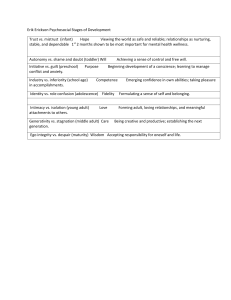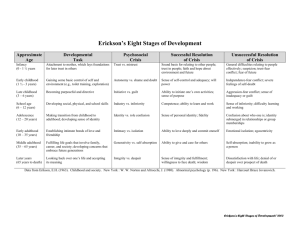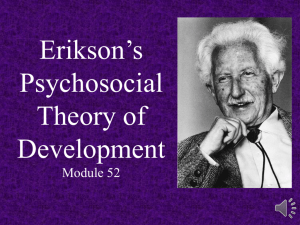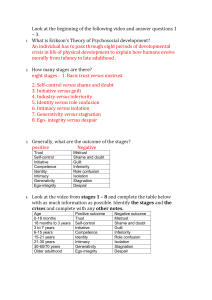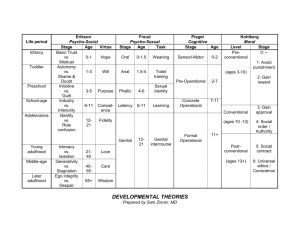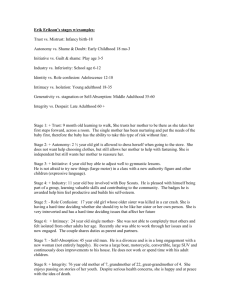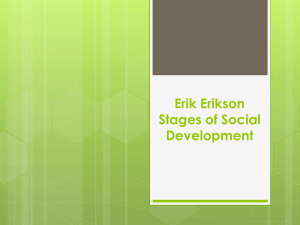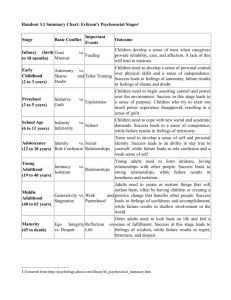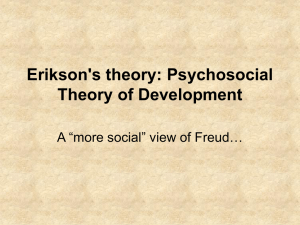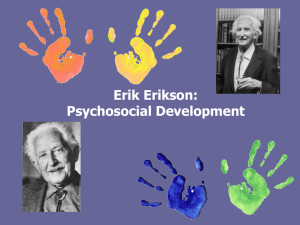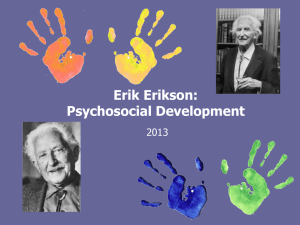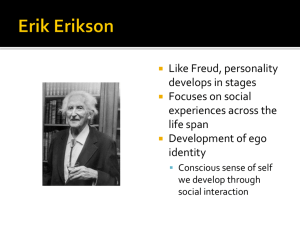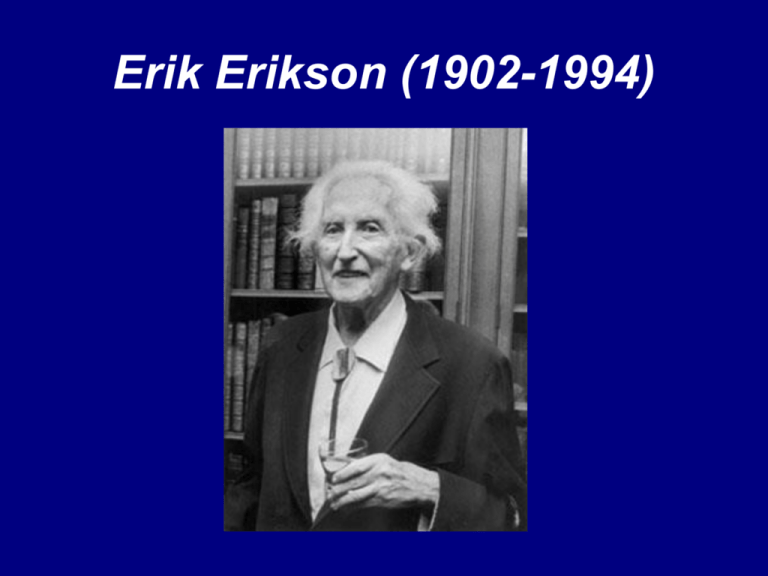
Erik Erikson (1902-1994)
Eriksonian Psychology
Built upon—did not reject—Freud’s ideas
-Psychosocial stages of development
-Life-long
-Heavily influenced by society and
culture
-Both positive and negative components to
each stage
-Unresolved conflicts may affect later development
1. Oral-Sensory Stage (birth – 1 year old)
Conflict: Trust vs. Mistrust
• Since the child is so dependent, its sense of
trust is determined by the care it receives during
this stage.
2. Muscular-Anal Stage (1-3 years old)
Conflict: Autonomy vs. Doubt
• Due to new motor and mental abilities, child’s
sense of autonomy is determined by care during
this stage.
3. Locomotor-Genital Stage
(4-5 years old)
Conflict: Initiative vs. Guilt
• Parents’ response to mental and physical
activity leads to initiative or guilt.
4. Latency Stage (6-11 years old)
Conflict: Industry vs. Inferiority
• Social forces beyond the family become
influential.
– The child’s ability to reason and create—and the
facilitation of these abilities—leads to a sense of
industry or inferiority.
5. Adolescence (12-18 years old)
Conflict: Identity vs. Role Confusion
• The adolescent’s ability to synthesize abstract
ideas, new world-views, and new physical
characteristics lead to identity or confusion.
– Society and culture play a larger role in this stage
6. Young Adulthood
Conflict: Intimacy vs. Isolation
• A sense of personal identity combined with
career can lead to either intimacy (not purely
sexual) or isolation.
7. Adulthood
Conflict: Generativity vs. Self-Absorption (or
Stagnation)
• Concern for others (beyond family) or lack
thereof are determined during this stage.
8. Maturity
Conflict: Integrity vs. Despair
• Ability to look back on life with satisfaction
determines integrity or despair.

